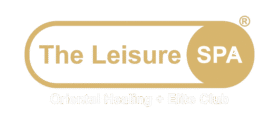381 total views, 2 views today
Love to Laugh: A Meditation Guide By Dr Susant Rout
There are a lot of different types of meditations to choose from and one of them is Laughter Meditation. Laughing comes from deep inside us and there’s always a healthy supply. You may be self-conscious at first but laughing out loud, not texting it (lol), breaks up tension in the body as it relaxes the muscles, bringing things back into balance. Laughter is healing as we access joy.
“Laughing gives us a chance to slow down and be with ourselves in the present moment. It brings awareness to our bodies. As our belly moves in and out or our head moves from side to side, It grounds us in the here and now.”
Laughing lightens our mood. This made me think of the song in Mary Poppins called “I Love to Laugh” where the characters are singing and laughing while floating in the air! There’s a sense of connection you get with laughter. When they were young, my daughters would sometimes just look at each other and break out into uncontrollable laughter. Laughter brings people together; it can be the glue in a marriage.
Anxiety robs of many things and when we laugh we reduce stress; our dopamine and serotonin levels increase and we feel better. There’s also evidence that laughter enhances our circulatory system. Lastly, laughter is a great emotional release. When feelings stay inside they make themselves at home. Let them out! Laughing can open the gate to free our anger, fears and sadness. Interested in finding more ways to reduce stress? Contact us for more information. In the meantime, try out a laughter meditation and have a good laugh – is there any other kind?
Dr Susant Rout- held a Engineer, Work with over 25 years of experience in corporate & wellness world. Throughout his career as a mentor to many, Susant has endeavored to take a holistic view in understanding the needs of individuals as well as incorporating the larger family and social dynamics effecting them. A tireless advocate, his greatest professional satisfaction comes from helping those in need to develop self-empowerment skills to take greater control of their situations and to become their own best ally, adviser, and advocate.
